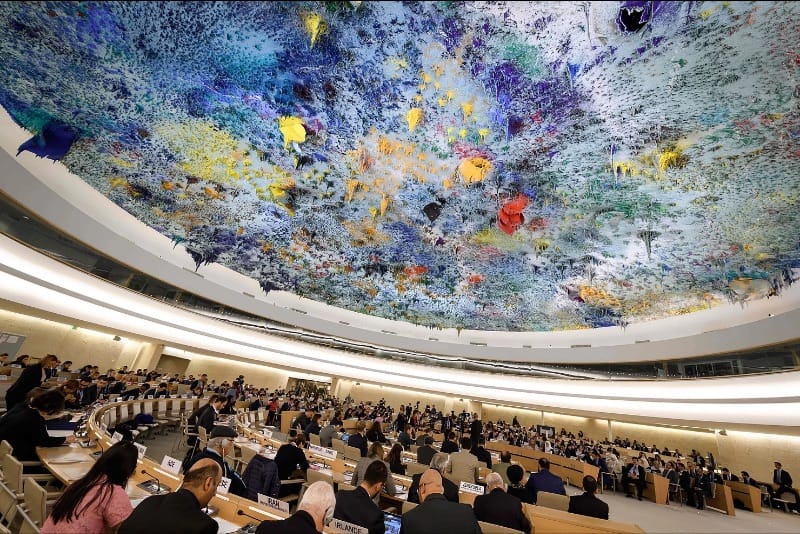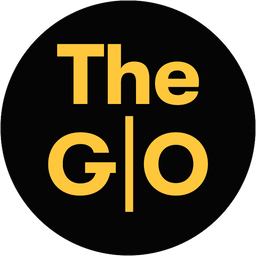China Punishes Activists and Families to Quash Dissent, Report Says
China is imposing “collective punishment” on activists and their families, in violation of its own Constitution and international law, according to a US-based advocacy group that cited emblematic cases also taken up by UN rights watchdogs based in Geneva.
Children of dissidents have been committed to psychiatric hospitals with their parents, or have disappeared into state custody. Other targeted families have been forced to move home repeatedly to evade constant harassment, including having their water and other utilities cut off, victims told a private online news briefing this week, attended by The Geneva Observer.
“The most heart-breaking part in really inflicting so much pain is the harm done to children. Children growing up from a young age watching their parents being mistreated and persecuted leaves a long-term psychological trauma,” said Renee Xia, director of the NGO Chinese Human Rights Defenders (CHRD).
The CHRD’s report, ‘If I Disobey, My Family Will Suffer,’ covers the persecution of the families of activists from the Han Chinese majority, Uyghur and Tibetan minorities, and from the pro-democracy movement who have fled Hong Kong.
“Children of rights defenders, including human rights lawyers, have been punished through guilt by association, from deprivation of personal freedom—house arrest, arbitrary detention in government designated facilities, forced into foster homes—to obstruction of the children’s education,” the report said, adding that “The Chinese government’s collective punishment of human rights defenders’ families appears to be a state policy.”
Some of the dozens of documented cases have been submitted for inclusion in UN Secretary-General Antonio Guterres’ next annual report on reprisals worldwide, due in September, according to Xia. The UN Committee on the Rights of the Child is due to review China’s record in 2025, The Geneva Observer has learned.
In a letter to Chinese authorities in mid-February, reported here for the first time, Margaret Satterthwaite, UN special rapporteur on the independence of judges and lawyers, voiced concern about laws used to revoke or suspend licenses that amount to “undue interference with the freedom of lawyers and law firms to exercise their legal profession.” Lawyers released from custody face disbarment and their families suffer eviction, duress, threats and expulsion from schools, she said, calling for corrective measures.
‘Blacklist’ Exit Bans
China’s ambassador Chen Xu, speaking at the country’s Universal Periodic Review (UPR) in January, told the Human Rights Council that his government protected basic freedoms for all citizens. The delegation is to report back in June on which of the record 428 recommendations put forward by other states it has accepted.

However, campaigners’ relatives say they are subjected to an intimidation campaign and sometimes put on a exit ban ‘blacklist’, preventing them from leaving the country, without any court order or legal grounds.
Wang Quanzhang, a prominent human rights lawyer released from prison in 2020 after serving four years for alleged subversion, resorted to living in hotels after multiple evictions, together with his activist wife Li Wenzu and son Quanquan. “But police would also follow us to hotels to threaten us, to push us out,” Li Wenzu said. “Then we tried to stay with a friend, and then the friend was visited by the police and threatened. They also came into his place in the middle of night and kicked us out of bed.”
“Eventually [Quanquan] was also stopped and we realized he was blacklisted. My husband Wang and I could not obtain passports, we are subjected to an exit ban,” she said. “Eventually we moved to Guangdong, we put my son into a church school, but then the church school also faced intimidation and eventually my son had to leave. Now we are trying to do online classes for him.”
He Fangmei, an advocate for safe vaccination, was pregnant when arrested in October 2020 while protesting outside a government office. “One month after giving birth, she was detained and taken away from the baby,” said one lawyer representing her. “The baby and the then four-year-old sister [who became paralysed after receiving defective vaccines] were detained in that psychiatric hospital in Huixian in Henan province. So that’s the urgent situation right now, we need to get those girls out.”
The court has indicated it would provide compensation for the disability, but has not specified an amount while He’s detention continues, the lawyer said, adding: “So the case is stuck.”
IT specialist Niu Tengyu was arrested in 2021 after the website he worked for posted leaked personal information about the daughter of President Xi Jinping. He was sentenced to 14 years in prison. “He was horribly tortured,” his mother, known as Keke, told reporters. “So as his mother I have been speaking out, to expose the torture details, to demand accountability, to demand to visit my son. Because of this, I myself have been subjected to all sorts of police harassment. They cut off my water, my electricity, air conditioning in the summer, people followed me all the time, they created noises at night to make it impossible to sleep.”
“They have staged some kind of a smear campaign against me,” Keke added. “Right now, I can hardly manage my own life, I am practically disabled [after being subjected to] so much stress and pain.”
“Wall of Secrecy”
Many Uyghurs in the diaspora face “a wall of secrecy, maintained by Chinese authorities, about their detained relatives,” according to the CHRD report.
Ekpar Asat, a Uyghur entrepreneur who also promoted their Turkic language, has not been allowed family visits since his detention eight years ago on unknown charges, according to Ekpar’s sister Rayhan Asat, a prominent activist, quoted in the document. “She knows that authorities are weaponizing the family visits to put pressure on her to end her activism,” the report said.
The UN Working Group on Arbitrary Detention found in 2022 that his internment, surrounded by “total secrecy,” was unlawful, and called for his release.
“The substantial use of collective punishment against human rights defenders demonstrates the distance that the Chinese government is willing to go to silence peaceful critics and maintain its grip on power,” the CHRD report said.
-SN

